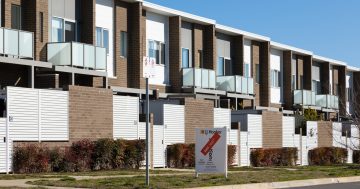By David Gray.
 Thinking of making a move when the time comes for you to retire?
Thinking of making a move when the time comes for you to retire?
Here are five important questions to get you thinking about possible options for your next home.
What do you plan to do in retirement?
When you’re scouting for retirement locations, it’s easy to fall in love with the simple lifestyle and visual appeal of a rural or coastal town.
However, it’s important to make sure your dream destination will have everything you need for the type of retirement you want to have.
Does it offer the recreational activities you enjoy the most?
If you’re planning to volunteer or work part-time, are there plenty of opportunities there for you?
Will you have access to the support you need?
Making a sea change may take you further away from family and friends so you’ll want to be confident that you’ll live comfortably without their support.
You’re also likely to be relying more on health care services as you age, so it’s important to know what sort of medical facilities are available nearby.
What’s going on in the property market?
Before setting your heart on a cottage with an ocean or mountain view, it’s worth finding out what these sort of properties cost and how often they come up for sale.
Even when the price is right, there may be low turnover in the area where you’re looking, making it hard to secure the type of property you want.
Bear in mind too that an older property might be charming, but will need more maintenance than a strata unit or villa.
What will it cost you to move – before and after?
The costs of relocating are always going to be significant, no matter where you’re moving to.
If you’re selling and buying elsewhere to free up capital to fund your retirement, things like stamp duty and agents’ fees need to be taken into account when calculating how much you’ll have leftover.
While you might be saving on accommodation costs when you move, think about the rest of your budget too.
Essentials like food and fuel and travel may end up costing you more after a move and if you need to travel to a major town or city for medical treatment, you’ll be paying for transport and possibly accommodation too.
What’s your overall financial plan?
While all these budget and lifestyle considerations are important ones, deciding where and when to move needs to be part of your overall financial plan for retirement.
Having enough income to fund your lifestyle, where you live now or elsewhere, is one of the most important things to plan for.
Your outstanding debts, super savings and aged pensions entitlement are just some of the financial factors that can make a difference to both your retirement income and where you’ll choose to live.
Take the next step
With the right help, planning for your retirement is easier than you think. For more expert tips, visit the StatePlus website at this PS News link.
* David Gray is a registered financial adviser with StatePlus and can be contacted at [email protected]

StatePlus, formerly State Super Financial Services, is one of Australia’s leading providers of financial planning. Since 1990, our retirement experts have provided life changing financial advice to public sector employees and their families. With a StatePlus planner by your side, you can feel confident about reaching your financial goals to live the retirement you really want.
This is general information only and does not take into account your personal objectives, financial situation or needs. It is important to seek financial and taxation advice that takes into account your personal objectives, financial situation and needs before making any decisions based on this information.











